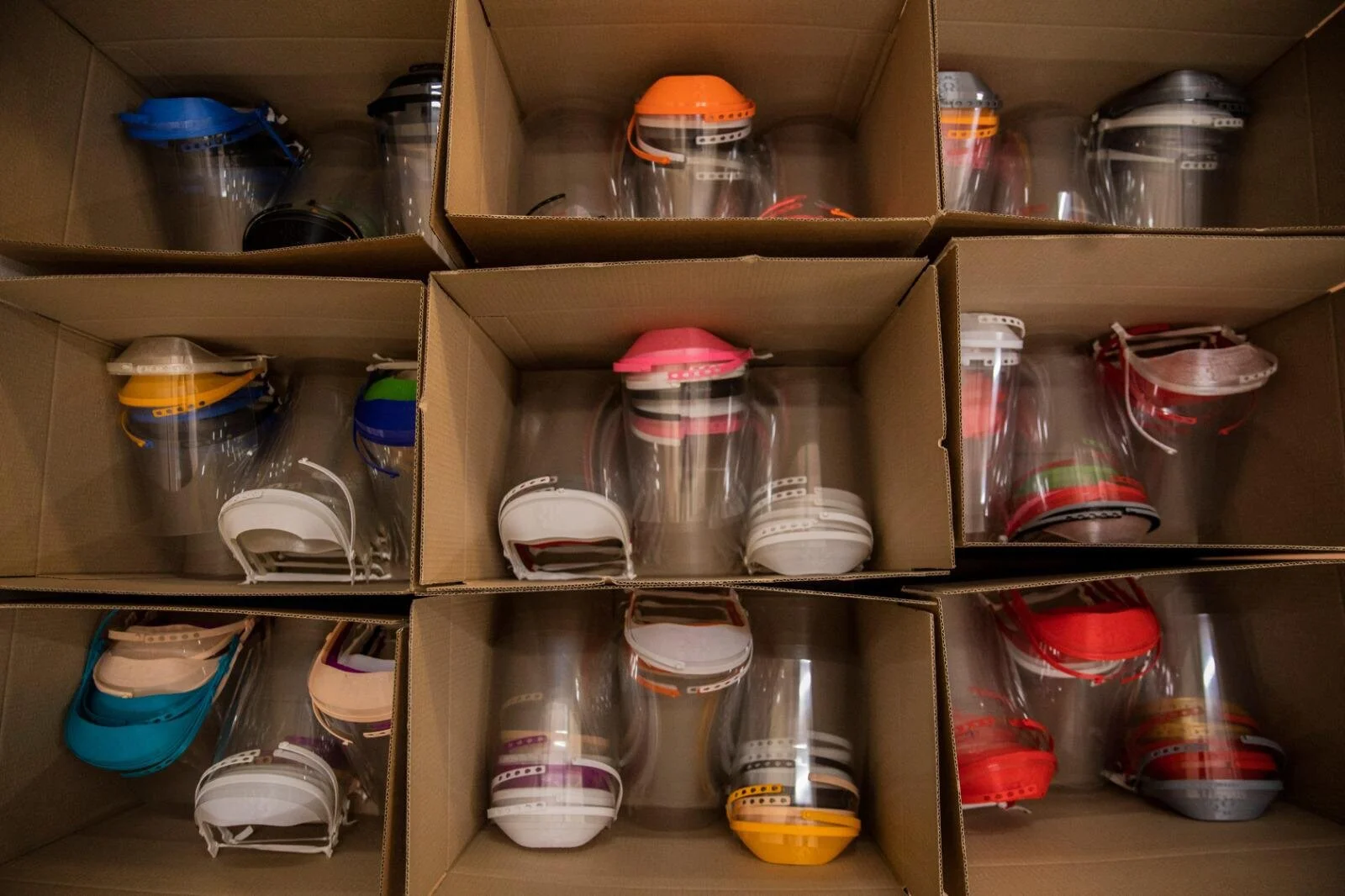State Legislatures Scramble to Meet in the Age of Coronavirus
State Legislatures Scramble to Meet in the Age of Coronavirus By Kate Elizabeth Queram Route Fifty March 30, 2020
Lawmakers across the country rushed to pass resolutions permitting virtual meetings and remote voting, efforts they said were necessary to adhere to social distancing guidelines and protect legislators.
In Arkansas, lawmakers convened inside of a basketball arena, maintaining social distancing in the tiered rows of seating to cast in-person votes on emergency legislation. Ohio legislators voted from separate rooms, dressed in casual clothing after Senate leaders observed that business attire typically requires dry cleaning so is washed less frequently. In New York, senators passed a resolution permitting them to vote by “remote means, including but not limited to teleconference or video conference.”
Welcome to legislating in the age of coronavirus.
Across the country, state lawmakers have tweaked rules that require them to meet and vote in person, moves they say are necessary to protect themselves while passing emergency legislation required to help communities respond to the Covid-19 outbreak.
“During these extraordinary circumstances, it is critical that the people’s house is able to continue to do the people’s work,” New York State Assembly Speaker Carl E. Heastie said in a statement. “These changes will preserve the integrity of New York's legislative process in a way that will also protect our members, our staff, the hardworking staff of the Capitol and the families we all go home to. This is a historic step that will help save lives and support New Yorkers.”
The state’s Assembly is poised to pass its own resolution this week, providing for “special temporary procedures” during a declared state of emergency. Proposed changes would include making every member’s vote a “yes” by default, requiring individual legislators to submit a “no” vote to be counted as voting against a measure. The resolution would also allow remote attendance and voting, and would permit lawmakers who call in to submit questions electronically.
Those measures are particularly important in New York, where four members of the legislature—all of them in the Assembly—have so far tested positive for Covid-19.
“It is paramount that we work together to protect the health and safety of our communities, and that includes our assemblymembers, staff and families,” Assembly Majority Leader Crystal Peoples-Stokes said in a statement. “This resolution gives us the ability to adapt to a new reality during this pandemic and potential future emergencies, while protecting both the Assembly’s democratic process and the health and wellbeing of New Yorkers.”
Other states already had rules in place that allow lawmakers to attend meetings remotely. South Dakota previously permitted lawmakers to call into meetings, though that rule pertained to committees that meet outside the regular session. The legislature was scheduled to meet Monday by video conference, live-streamed for members of the public, though lawmakers said they were unsure if that setup adhered to the rules outlined in the state’s constitution.
“We’re just out of options,” Repubican Senate Majority Leader Kris Langer told a local TV station.
In Wisconsin, a constitutional provision on continuity of government already permitted the legislature to “adopt such other measures that may be necessary and proper,” which lawmakers said included virtual sessions in the name of public health. Senators began preparing for that possibility last week, holding a “dress rehearsal” over Skype.
A virtual session would be the first for the state, though it’s not certain that lawmakers will need it. Senate President Roger Roth, a Republican from Appleton, told the Wisconsin State Journal that a virtual session was a contingency plan in case lawmakers need to convene to pass emergency legislation related to the coronavirus outbreak.
“We’re living in extraordinary times,” he said. “What we are showing (the public) in this virtual session that we’re putting together is that it doesn’t matter what comes our way. Our government is going to endure.”






